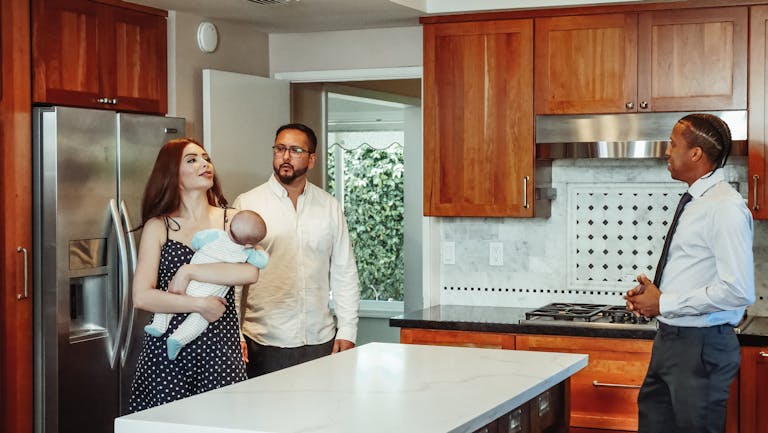Gift of Equity Home Purchase By Family Members
This guide covers the mortgage guidelines for buying home from family members. Gustan Cho Associates get many calls from home buyers about buying home from family members. There are many benefits to buying home From Family Members. Many home buyers often want to purchase a home from their parents. They were often raised in the home and are familiar with the neighborhood.
Buying home from family members can be a win-win situation. The home can stay in the family. Many folks want to sell their larger homes when they become empty nesters and need to downsize.
Many home sellers often like their children to purchase their homes so it stays in the family. Buying home from family members is very common. There are specific mortgage guidelines for buying home from family members. In this blog, we will discuss buying home from family members and the guidelines for buying home from family members. Buying home from family members is often called Non-arm’s length home purchase transaction. There are specific rules and guidelines for home buyers buying home from family members.
Buying Home From Family Members Mortgage Guidelines On Arm’s Length Transactions
Examples of non-arm transactions are buying and selling among family members, parents, children, grandparents, grandchildren, close business members, or long-term close friends.
Memories are made in homes. They may want the family home to remain in the family for generations to come. When lenders analyze the transaction types on home purchases, they want to know whether they are arm’s length versus non-arms length transactions. Get Qualify For A FHA Or Conventional Loan With US
Buying Home From Family Members
Buying a home from a family member using a gift of equity can benefit both parties. A gift of equity occurs when a family member sells their home to a relative at a price below market value, and the difference between the market value and the sale price is considered a gift. Here’s a detailed guide on how to navigate this process:
Steps to Buy Home From Family Members with a Gift of Equity
First step to buying home from family members with a gift of equity is to determine the market value of the home by hiring a professional appraisal: Obtain a professional appraisal to determine the home’s fair market value. This is essential for understanding the equity gift amount and the lender’s underwriting process.
Agree on Sale Price
Negotiated Price: The seller (family member) and buyer (you) agree on a sale price below the market value, creating the gift of equity. For example, if the home’s market value is $300,000 and you agree to buy it for $250,000, the $50,000 difference is the gift of equity.
Gift Letter
Documentation: The seller must provide a gift letter stating the amount of the gift of equity. This letter should declare that the gift is given without expecting repayment. The letter must be signed by both the giver (seller) and the recipient (buyer).
Mortgage and Down Payment
Lender Requirements for a loan approval: Inform your lender about the gift of equity. The lender will require the gift letter and the appraisal report. The gift of equity can be used towards your down payment, which might reduce or eliminate the need for additional cash down payment. You must still qualify for the mortgage based on your credit score, income, and other financial factors.
Mortgage Loan Programs
FHA Loans: FHA allows gifts of equity from family members. The gifted amount can be used for the required 3.5% down payment. Additional conditions may apply, such as the property needing to meet certain appraisal standards. Conventional Loans: Fannie Mae and Freddie Mac also allow gifts of equity for conventional loans. The requirements might vary, including possible additional documentation.
Tax Considerations
Gift Tax: IRS Regulations: The IRS allows annual gift tax exclusions (up to $17,000 per recipient as of 2024) and a lifetime exemption (up to $12.92 million as of 2024). The seller should consult with a tax advisor to understand the implications and ensure compliance with IRS regulations. Recording the Transaction: Closing Costs: Both parties must know and agree on how closing costs will be handled. These costs include title insurance, escrow fees, and recording fees. Title Transfer: Work with a real estate attorney or title company to ensure the title transfer is handled correctly and the deed is properly recorded.
Benefits and Considerations Buying Home From Family Members With Gift of Equity
Reduced Down Payment: The gift of equity can significantly reduce or eliminate the need for an additional down payment. Lower Mortgage Amount: Purchasing the home at a below-market price can result in a lower mortgage amount and potentially lower monthly payments. Fair Market Value: Ensuring an accurate appraisal is crucial for tax purposes and lender approval. Family Dynamics: Clear communication is essential to avoid misunderstandings or conflicts within the family.
Example Scenario
- Market Value: $300,000
- Agreed Sale Price: $250,000
- Gift of Equity: $50,000 (used as down payment)
In this scenario, the buyer can use the $50,000 gift of equity as the down payment, possibly securing a more favorable mortgage loan and reducing the amount they need to borrow. IRS: Gift Tax. By following these steps and understanding the nuances of a gift of equity home purchase, you can facilitate a smooth transaction and potentially enjoy significant financial benefits. Click here to apply for mortgage loans
Difference Between Arm’s Length Versus Non-Arm’s Length Home Purchase Transactions
An arm’s length transaction is when a homebuyer and seller do not have a financial interest in each other In most non-arms transactions. People do not know each other. Many grandparents or parents may sell their homes to their grandchildren or children at a low price with favorable terms they would otherwise not sell to a stranger.
People that know each other may still have an arm’s length transaction. For example, a co-worker may want to purchase a home from another co-worker.
This type of transaction is considered a non-arm’s transaction. It is a transaction where the homebuyer and sellers have no financial interest, whether they know each other or not. It is up to each party to get the best deal for themselves. The agreed-upon price is often derived close to the market value since each side is acting to get the best deal. The sellers want to get the highest price, while the buyers want to get the lowest price. The price negotiated and executed is a price somewhere in the middle. The opposite occurs in a non-arms-length transaction.
Benefits of Buying Home From Family Members

Non-arm transactions are also called arm-in-arm transactions. Non-arm transactions are transactions when both parties have a personal or professional close relationship.
The home seller is often a family member who is part of the buyer’s everyday life. Normally, a realtor is not required on non-arms-length transactions. Home sellers and buyers will save money since they do not have to pay the 6% real estate sales commission. There is more flexibility in quarterbacking sales. Normally earnest money is not exchanged hands.
Buying a Home From Family Members With a Gift of Equity
Homeowners can offer a gift of equity at a discount to a family member. By providing a gift of equity, the seller agrees to take lower net proceeds from the home’s sale, thus gifting the buyer some of their equity. The gift of equity can be used for the down payment when buying a home from a family member at a discount. Private mortgage insurance is not required if the gift of equity is greater than 20% of the property’s purchase price.
Gift of Equity Mortgage Process
An appraisal is required on a gift of equity transactions to determine the property’s fair market value. The homeowner selling the home must have equity in the home for the gift of equity.
Special paperwork and guidelines the mortgage lender provides must be completed and submitted. The gift must be noted in the closing settlement statement.
Oftentimes, it is recommended that business and family do not mix. Ensure there are no misunderstandings when buying a home from a family member. You must trust the family member you are buying or selling a home. Both buyers and sellers should do their due diligence and not have any thoughts that one is taking advantage of one another. Get purchase home for your family with us
Tax Consequences on a Gift of Equity Purchase Transactions
A gift of equity of more than $15,000 for a single home buyer and over $30,000 in the gift of equity for a married couple may have tax consequences. Home sellers may also need to report capital gains taxes on the sale. John Strange, a senior loan officer at Gustan Cho Associates, explains the tax consequences of buying home from family members through a gift of equity purchase transactions as follows:
You must consult your accountant or financial advisor before executing a gift of equity sale transaction. Gustan Cho Associates are experts helping homebuyers with the gift of equity transactions.
For more information about the gift of equity home purchase transactions, please get in touch with us at Gustan Cho Associates at 800-900-8569 or text us for a faster response. Or email us at gcho@gustancho.com. The team at Gustan Cho Associates is available seven days a week, evenings, weekends, and holidays.
For expert assistance, contact Gustan Cho Associates at 800-900-8569, text for a faster response, or email gcho@gustancho.com. They are available seven days a week, including evenings, weekends, and holidays.







